
Revista Numismatica Hecate
Scope & Guideline
Unlocking the Secrets of Historical Currency
Introduction
Aims and Scopes
- Historical Numismatics:
The journal focuses on the historical context of currency, exploring the evolution of coins and monetary systems throughout different periods, particularly in the Iberian Peninsula and Latin America. - Archaeological Numismatics:
Research often integrates archaeological findings with numismatic studies, examining the significance of coin discoveries in understanding historical trade, economy, and culture. - Cultural and Political Implications of Currency:
Papers delve into how currency and medals reflect cultural identities, political regimes, and social changes, providing a critical lens on the role of money in society. - Methodological Innovations in Numismatics:
The journal promotes the development of new methodologies for analyzing numismatic artifacts, including statistical approaches, iconographic analysis, and historical documentation. - Interdisciplinary Studies:
Encouraging collaboration across disciplines, the journal often features works that intersect numismatics with history, sociology, anthropology, and art history, enhancing the understanding of monetary artifacts.
Trending and Emerging
- Regional Studies of Currency Circulation:
There is an increasing focus on specific regional studies, such as the examination of currency circulation in Cuba and the Iberian Peninsula, reflecting a trend towards localized historical analysis. - Gender and Representation in Numismatics:
Emerging research themes include gender analysis within numismatic artifacts, indicating a growing interest in how currency can reflect or challenge societal norms related to gender. - Commemorative Medals and Political Narratives:
The exploration of commemorative medals as tools for political expression and historical narrative is gaining traction, showcasing how these artifacts serve as reflections of societal values and historical events. - Cultural Narratives in Coinage:
There is a notable trend towards analyzing how cultural narratives are depicted in coin designs and inscriptions, emphasizing the importance of iconography in understanding historical contexts. - Impact of War on Currency Design:
Recent publications are increasingly examining how wars and conflicts influence currency design and production, highlighting the intersection of numismatics with military history.
Declining or Waning
- Modern Numismatic Practices:
There has been a noticeable decrease in studies centered around contemporary numismatic practices and issues, possibly due to a growing preference for historical and archaeological perspectives. - Generalized Economic Theories in Numismatics:
Research that broadly applies economic theories to numismatic findings has waned, with scholars favoring more specific case studies that offer deeper insights into localized monetary practices. - Theoretical Frameworks in Numismatic Analysis:
The use of complex theoretical frameworks to analyze numismatic data appears to be declining, as researchers increasingly prioritize empirical studies based on concrete historical evidence.
Similar Journals

Annales Instituti Archaeologici
Advancing Archaeological Knowledge Through Rigorous ResearchAnnales Instituti Archaeologici is a distinguished journal published by INST ARHEOLOGIJU, dedicated to advancing research in the field of archaeology. With an ISSN of 1845-4046 and an E-ISSN of 1848-6363, this journal serves as a vital platform for the dissemination of innovative archaeological studies and findings, reflecting the evolving trends and methodologies in this fascinating discipline. Based in Croatia, the journal captures a global audience, emphasized by its Q3 ranking in both Archaeology categories as per the latest 2023 metrics, indicating a solid presence in the academic landscape. Although it does not currently offer Open Access options, its impactful contributions are recognized through its Scopus ranks, where it stands at #137/413 in Archaeology related to Arts and Humanities and #135/354 in Social Sciences. Researchers, professionals, and students interested in the latest archaeological research and its applications will find Annales Instituti Archaeologici to be an invaluable resource, promoting knowledge and fostering scholarly communication within the archaeological community.
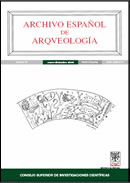
Archivo Espanol de Arqueologia
Connecting scholars to the rich tapestry of history.Archivo Español de Arqueología is a prestigious journal published by the Consejo Superior de Investigaciones Científicas (CSIC), dedicated to the field of archaeology and the historical sciences. Since its transition to Open Access in 1991, this journal has been a significant resource for scholars and practitioners in Spain and beyond, ensuring the dissemination of high-quality research to a broad audience. With an impressive Scopus ranking that places it within the top 20% of journals in the disciplines of History and Archaeology, Archivo Español de Arqueología plays a crucial role in advancing academic discourse and promoting innovative archaeological methodologies. The journal has maintained rigorous standards, reflected in its placement within the Q2 and Q3 quartiles, enabling it to establish a reputation for excellence and reliability in archaeological scholarship. Researchers, professionals, and students are encouraged to explore the journal's diverse array of articles from its foundation year of 2009 to the present, enriching their understanding of the past through the latest findings and theoretical advancements in archaeology.
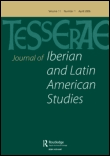
Journal of Iberian and Latin American Studies
Connecting scholars to the pulse of Iberian and Latin American studies.The Journal of Iberian and Latin American Studies, published by Routledge Journals, Taylor & Francis Ltd, is a prominent scholarly platform focused on exploring the diverse cultural, historical, and linguistic narratives of the Iberian Peninsula and Latin America. Boasting an ISSN of 1470-1847 and an E-ISSN of 1469-9524, this journal serves as an essential resource for researchers, professionals, and students alike, bridging critical inquiries between these interconnected regions. With its current residence in the Q3 category of renowned academic landscapes such as Cultural Studies, History, and Linguistics as of 2023, the journal underscores its commitment to the advancement of interdisciplinary dialogues and innovative scholarship. Notably, it ranks well within various categories, including a commendable 52nd percentile in Arts and Humanities - History and a 40th percentile in Arts and Humanities - Language and Linguistics. Whether you are looking to ground your studies in historical context or engage with contemporary cultural shifts, this journal offers a valuable opportunity to connect with critical scholarship and emerging research in the field.
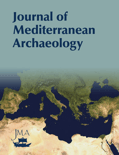
Journal of Mediterranean Archaeology
Illuminating the Past, Shaping the Future of ArchaeologyThe Journal of Mediterranean Archaeology, published by EQUINOX PUBLISHING LTD in the United Kingdom, is a premier academic journal dedicated to the exploration and dissemination of knowledge within the vibrant field of Mediterranean archaeology. Established in 1988, this journal has consistently demonstrated its commitment to scholarly excellence, attaining a Q1 ranking in various categories, including Archaeology and Arts and Humanities, making it a vital resource for researchers and students alike. With a prominent Scopus rank of #49 out of 413 in Archaeology, it places itself among the top-tier publications, reflecting its impact and relevance in contemporary archaeological discourse. Although the journal is not open access, its rigorous peer-review process ensures the publication of high-quality scholarly articles that contribute significantly to the understanding of the diverse cultural narratives within the Mediterranean region. As the journal moves toward its 35th anniversary, it continues to be a cornerstone for professionals seeking to share groundbreaking research and dialogue in this critically important area of study.

Rivista Storica Dell Antichita
Connecting Scholars Through Ancient NarrativesRivista Storica Dell Antichita is a distinguished academic journal published by PATRON EDITORE S R L, dedicated to advancing knowledge in the fields of Archaeology, Classics, and History. With an ISSN of 0300-340X, this journal serves as a crucial platform for scholars and researchers who seek to delve into the rich historical narratives of antiquity. Although it has discontinued its coverage in Scopus after 2021, its legacy reflects a commitment to fostering scholarly dialogue within the academic community, evident from its rankings in notable Scopus categories, including Q3 in Classics and Q4 in Archaeology and History. Additionally, Rivista Storica Dell Antichita boasts a substantial readership in Italy, contributing to the understanding of historical contexts and methodologies. As scholars engage with its authentic research articles, they will find in this journal a valuable resource that not only enhances academic discourse but also inspires future explorations into the ancient world.

Vinculos de Historia
Engaging Minds, Enriching HistoriesVinculos de Historia, published by the University of Castilla-La Mancha, is a distinguished open-access journal that has been contributing to the field of history since its inception in 2012. Based in Spain, it serves as a vital scholarly platform for historians and researchers alike, engaging with various historical methodologies and perspectives. With an impressive Q2 ranking in the 2023 Scopus Arts and Humanities Category, it ranks at #803 out of 1760 journals, placing it in the top 54th percentile of its field. The journal is committed to disseminating high-quality research articles that foster a deeper understanding of historical narratives and their implications. By providing unrestricted access to peer-reviewed content, Vinculos de Historia not only enhances scholarly discourse but also encourages collaboration among academics, professionals, and students globally. Located at FAC Letras Ciudad Real, the journal stands as a testament to the robust intellectual tradition of the University of Castilla-La Mancha.

Revista de Arqueologia Historica Argentina y Latinoamericana
Connecting Cultures Through Archaeological DiscoveryRevista de Arqueologia Historica Argentina y Latinoamericana is a vital scholarly journal dedicated to the field of archaeology, with a particular focus on the historical dimensions of Argentina and Latin America. Published by the Assoc Professional Archaeologists Argentine Republic, this open-access journal has been enriching the archaeological discourse since 2007, making its valuable content freely accessible to researchers, professionals, and students around the globe. With an ISSN of 1851-3190 and an E-ISSN of 2344-9918, the journal aims to foster a deeper understanding of the archaeological heritage of the region by publishing innovative research articles, critical reviews, and methodological advancements in the study of historical archaeology. Positioned as a prominent platform for scholarship, it plays a crucial role in advancing archaeological knowledge while promoting interdisciplinary approaches within the field.

International Journal of Historical Archaeology
Advancing Knowledge: The Premier Platform for Archaeological ScholarshipInternational Journal of Historical Archaeology, published by SPRINGER, stands at the forefront of archaeological scholarship, focusing on the intricate relationship between historical events and archaeological findings. With an impressive impact factor underscored by its ranking in the Q1 quartiles across various categories, including Archeology and History, this journal serves as a premier platform for researchers, professionals, and students alike to disseminate groundbreaking findings and theoretical advancements in the field. Although it is not an Open Access publication, the journal provides valuable insights through its rigorous peer-review process, enhancing the quality of contributions. Covering a breadth of topics from 1997 to 2024, it is vital for advancing knowledge in historical archaeology and offers an essential resource for those invested in understanding our shared past through the lens of material culture. The journal's commitment to fostering interdisciplinary discussions enriches the scholarly community and supports the evolution of methodologies and perspectives within the domain.
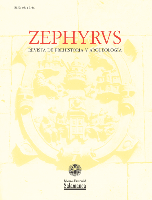
Zephyrus-Revista de Prehistoria y Arqueologia
Bridging Past and Present Through Archaeological InsightZephyrus-Revista de Prehistoria y Arqueologia, published by UNIV SALAMANCA, EDICIONES, is a renowned academic journal dedicated to the fields of archaeology and prehistory. Since its inception in 1950, the journal has embraced an Open Access model, facilitating widespread access to cutting-edge research and scholarly discourse while fostering global collaboration among researchers. Based in Salamanca, Spain, this journal has achieved remarkable recognition, evidenced by its Q1 rankings in Archaeology and History as of 2023, and impressive Scopus standings across various categories, including an 83rd percentile in History. The journal's comprehensive scope since 2011 has made it a vital resource for academics seeking to deepen their understanding of human history through archaeological insights. Zephyrus not only provides a platform for disseminating innovative research findings but also serves as a bridge between historical scholarship and contemporary archaeological practices, ensuring that researchers, professionals, and students alike have access to the latest developments in the field.
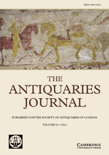
Antiquaries Journal
Bridging History and Art in Scholarly Excellence.The Antiquaries Journal, published by Cambridge University Press, is a prestigious publication dedicated to the multidisciplinary exploration of antiquarian studies, archaeology, history, and the visual arts. With an impact factor reflective of its influence within the academic community, it is essential reading for researchers, professionals, and students alike. This journal serves as a vital platform for disseminating cutting-edge research and scholarly discourse, particularly in its recent categorization within Q1 in Visual Arts and Performing Arts and Q2 in History. The journal spans a rich historical timeline from 1921 to the present, offering unique insights and fostering dialogue in the interrelated fields of archaeology and historical inquiry. While it is not an open-access journal, its commitment to rigorous peer review and academic excellence ensures that the content remains a critical resource for anyone engaged in the study of the past, particularly within the United Kingdom and beyond.